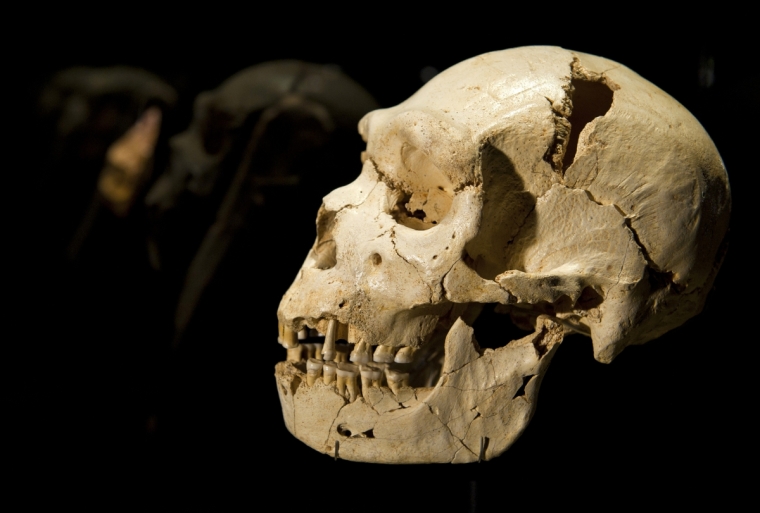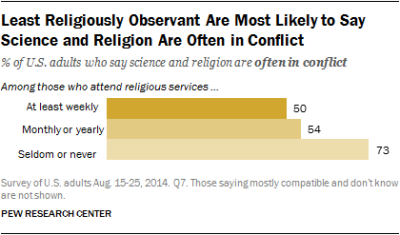Pew: For the most religious, science and religion don't conflict

WASHINGTON (Christian Examiner) – In findings that challenge decades-old perceptions of the relationship between religion and science, a new study from the Pew Research Center claims Americans who attended religious services weekly are less likely to see religion and science in conflict than those who do not attend.
According to the survey, half of Americans who attend services regularly find that science and religion are often in conflict. That figure, however, is lower than those who attend monthly or yearly (54 percent) and significantly lower than those who seldom or never attend (73 percent).
In particular, and also contradictory to public perceptions about science and religion, white evangelical Protestants and Hispanic Catholics – traditionally regarded as the most conservative segments of American religious life – are "especially likely to say science and religion are mostly compatible; roughly half of both groups take this position."
Almost half of white evangelicals agreed with the statement that science is compatible with faith. That figure is higher than the sum total of adults in the U.S., at 38 percent.

That doesn't mean all white evangelicals find science and their own personal beliefs compatible with science. Forty percent of the survey group said their personal beliefs sometimes run contrary to accepted science, while 57 percent said they did not.
Conflicts between religion and science are generally issues-oriented conflicts, the survey found.
"In an open-ended question, adults who said that science conflicts with their own religious beliefs were asked to provide up to three beliefs of theirs with which science was in conflict. The most common reported response relates to views on the creation of the universe, including evolution (36%). Among those responding, 24% referenced broad differences such as that their belief in God is at odds with a perspective that man is 'in charge' or that the miracles in the Bible were at odds with science. Other ways science is perceived as conflicting with religious beliefs include views about the beginning of life and abortion (11%) and scientific or medical practices such as blood transfusion, cloning or genetic engineering (7%). Some 18% of those who say their own religious beliefs sometimes conflict with science did not name any particular ways in which the two conflict," the Pew research study found.
Thirty one percent of black Protestants (two-thirds of them calling themselves "evangelical") also agreed that science and religion are "mostly compatible."
In the area of evolution, not surprisingly, roughly 65 percent of all adult Americans indicated they believed human beings had evolved over time, though the survey didn't specify the means of evolution – macro-evolution in which humans evolved from other species or micro-evolution in which human beings evolved within their own species only.
Eighty-six of religiously-unaffiliated adults ascribed to the belief that humans and all living things evolved over time. Support for the same idea among white Catholics (73 percent), white mainline Protestants (71 percent) and Hispanic Catholics (59 percent) was also relatively high.
Among white evangelicals, 60 percent believed human beings "existed," that is, were created as human beings and did not evolve. Support for the theory of evolution declined in proportion to the number of times people attended church services weekly.
According to Pew, among Americans as a whole, 59 percent claim science and religion often conflict, with 38 percent saying they are mostly compatible. Only 30 percent of the Americans as a whole, however, believe their personal beliefs are at odds with science.
"People's sense that there generally is a conflict between religion and science seems to have less to do with their own religious beliefs than it does with their perceptions of other people's beliefs," the research study claimed.